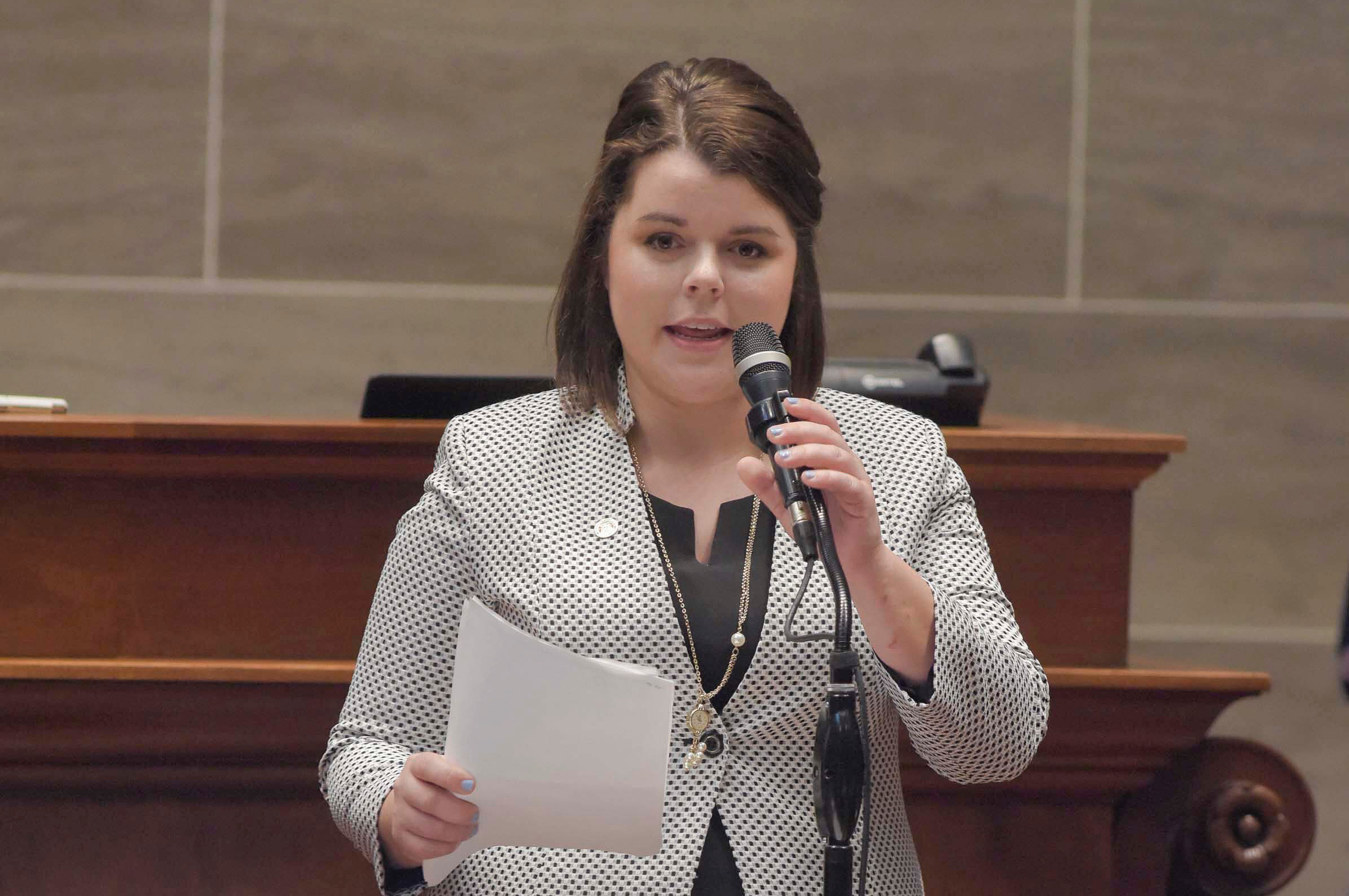JEFFERSON CITY, Mo. — State Rep. Hannah Kelly has pre-filed legislation aimed at reforming how Missouri handles sexual assault kits — an effort she said would strengthen investigations and prosecutions of rapists.
Kelly’s HB 1815 is the mirror version of legislation already filed by GOP Sen. Andrew Koenig earlier this month. Both seek to streamline the testing process, mandate participation in the state’s electronic tracking system, allow victims and advocates to receive reports on the status of kits, and require unreported kits to be preserved for 30 years.
“I believe that life is precious, and when there is a crime committed against a life in these situations, we have these kits that — once processed — bring justice to the victims and their families,” Kelly told The Missouri Times. “I believe that it’s a serious responsibility of the legislature to ensure that the victims and their families see justice.”
Both bills come after Attorney General Eric Schmitt released an audit last month of the more than 6,100 untested rape kits in Missouri. The Republican lawmakers crafted their bills as a response to the recommendations made in the report, they said.
Kelly, in particular, pointed to a provision that would create a central repository to keep and preserve unreported rape kits for 30 years. She said she’s met with people whose loved ones had been sexually assaulted and wished to have an avenue for justice or closure “even if at the time it didn’t seem like the [feasible] thing to do.”
“If we have an issue that is obviously staring us in the face, we need to address it, do what needs to be done to resolve the issue, and bring whatever closure we can help bring,” Kelly said.
State statute mandates each sexual assault kit and individual component be tested and tracked separately — something the attorney general’s report called “extremely burdensome” that has the potential to “compromise the integrity of the kit for no additional tracking benefit.”
These bills would allow the testing and tracking of the kits as a whole.
Additionally, the legislation sets a path for victims or advocates to receive status updates on the kit through a secure electronic system.
“Information is power,” Kelly said. “This would be a vital, important step of ensuring we have that for the victims and their families, so they don’t have to have any question marks. If [a kit is] stalled, okay, we know it’s stalled, and we can now find out why.”
The November audit from the Attorney General’s Office identified 6,157 kits remained untested throughout Missouri and pointed to an additional 830 that could need to be retested. Jackson County had the highest rate of untested kits; Moniteau County had the lowest, according to the report.

Kaitlyn Schallhorn was the editor in chief of The Missouri Times from 2020-2022. She joined the newspaper in early 2019 after working as a reporter for Fox News in New York City.
Throughout her career, Kaitlyn has covered political campaigns across the U.S., including the 2016 presidential election, and humanitarian aid efforts in Africa and the Middle East.
She is a native of Missouri who studied journalism at Winthrop University in South Carolina. She is also an alumna of the National Journalism Center in Washington, D.C.
Contact Kaitlyn at kaitlyn@themissouritimes.com.











